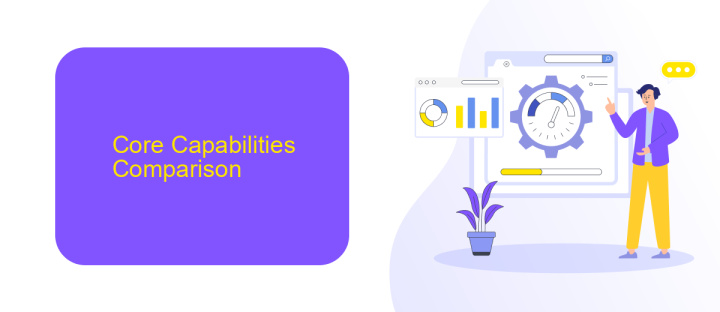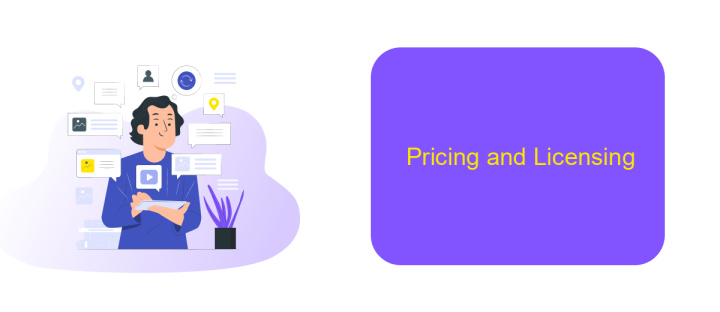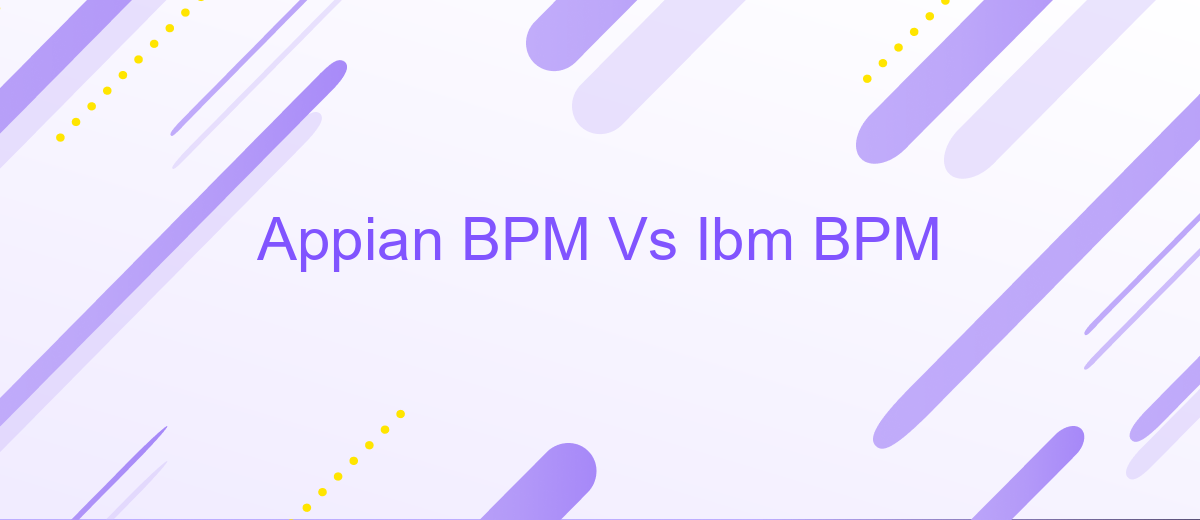Appian BPM Vs Ibm BPM
In the rapidly evolving world of business process management (BPM), selecting the right platform can significantly impact organizational efficiency and agility. This article delves into a comprehensive comparison between two leading BPM solutions: Appian BPM and IBM BPM. By evaluating their features, usability, and performance, we aim to provide valuable insights to help businesses make an informed decision tailored to their specific needs.
Introduction
In today's fast-paced business environment, organizations are constantly seeking ways to optimize their workflows and improve efficiency. Business Process Management (BPM) platforms like Appian and IBM BPM have emerged as powerful tools to facilitate these goals. Both platforms offer comprehensive solutions for process automation, but they come with their own unique features and capabilities.
- Appian BPM is known for its user-friendly interface and rapid application development capabilities.
- IBM BPM excels in handling complex, large-scale enterprise processes with robust integration options.
- Both platforms support seamless integration with third-party services such as ApiX-Drive for enhanced connectivity.
This article aims to provide a detailed comparison between Appian BPM and IBM BPM, examining their strengths, weaknesses, and suitability for different business needs. By understanding the key differences, organizations can make informed decisions on which platform best aligns with their operational requirements.
Core Capabilities Comparison

Appian BPM and IBM BPM are two leading platforms in the business process management (BPM) space, each offering a robust suite of core capabilities. Appian BPM excels in its low-code development environment, enabling rapid application deployment with minimal coding. Its intuitive drag-and-drop interface makes it accessible for users with varying technical expertise. Additionally, Appian offers comprehensive case management and strong mobile support, ensuring that processes can be managed efficiently from any device.
IBM BPM, on the other hand, is renowned for its powerful integration capabilities and scalability. It supports complex process orchestration and provides a wide range of tools for process modeling, monitoring, and optimization. IBM BPM's integration with ApiX-Drive simplifies the process of connecting various applications and automating workflows, making it an excellent choice for organizations with intricate system landscapes. Both platforms offer robust analytics and reporting features, but IBM BPM's deep integration options and scalability give it an edge in large-scale enterprise environments.
Industry Expertise and Use Cases

Appian BPM and IBM BPM have established themselves as prominent players in the Business Process Management (BPM) industry, each offering unique expertise and use cases. Appian BPM is renowned for its low-code platform, enabling rapid application development and deployment across various sectors, including finance, healthcare, and government. IBM BPM, on the other hand, is celebrated for its robust integration capabilities and enterprise-level scalability, making it a preferred choice for large organizations in industries like banking, insurance, and manufacturing.
- Finance: Appian BPM excels in streamlining loan processing and compliance management, while IBM BPM enhances risk management and transaction monitoring.
- Healthcare: Appian BPM supports patient management and regulatory compliance, whereas IBM BPM focuses on improving clinical workflows and data interoperability.
- Government: Appian BPM aids in citizen service delivery and case management, while IBM BPM enhances public sector operations through effective resource management.
Both platforms offer integration services to connect with existing systems and third-party applications. For instance, ApiX-Drive can be utilized to facilitate seamless integrations, ensuring data flows smoothly between different software solutions. This enhances the overall efficiency and effectiveness of BPM implementations, providing tailored solutions to meet specific industry needs.
Pricing and Licensing

When comparing Appian BPM and IBM BPM, pricing and licensing are critical factors to consider. Appian BPM offers a flexible pricing model that includes cloud-based and on-premises solutions. This allows organizations to choose a plan that best fits their budget and needs, whether they prefer a subscription-based model or a perpetual license.
On the other hand, IBM BPM typically follows a more traditional enterprise pricing model, which can be more complex. IBM offers various licensing options, including perpetual licenses and subscription-based models. The cost can vary significantly depending on the scale of deployment and the specific features required.
- Appian BPM: Flexible cloud and on-premises pricing
- IBM BPM: Traditional enterprise pricing with multiple licensing options
- Customization and integration capabilities
- Scalability and additional features
Both platforms offer robust customization and integration capabilities. For seamless integration with other services, tools like ApiX-Drive can be highly beneficial. ApiX-Drive allows for easy setup of integrations, ensuring that your BPM solution works harmoniously with other systems in your organization.
Conclusion
In conclusion, both Appian BPM and IBM BPM offer robust solutions for business process management, each with its unique strengths. Appian excels in ease of use and rapid deployment, making it a suitable choice for organizations looking for quick and efficient BPM implementation. Its low-code platform allows for greater flexibility and faster time-to-market, which can be a significant advantage in a fast-paced business environment.
On the other hand, IBM BPM provides a more comprehensive suite of tools, catering to complex and large-scale enterprise needs. Its strong integration capabilities and advanced analytics make it a powerful option for businesses that require in-depth process optimization and scalability. For those looking to enhance their integration processes, services like ApiX-Drive can be invaluable, offering seamless connectivity between various applications and systems. Ultimately, the choice between Appian BPM and IBM BPM will depend on your specific business requirements, budget, and long-term goals.
FAQ
What are the main differences between Appian BPM and IBM BPM?
Which platform is easier to use for non-technical users?
How do Appian BPM and IBM BPM handle integration with other systems?
Can both platforms support mobile application development?
What are the options for automating and integrating processes using third-party services?
Time is the most valuable resource in today's business realities. By eliminating the routine from work processes, you will get more opportunities to implement the most daring plans and ideas. Choose – you can continue to waste time, money and nerves on inefficient solutions, or you can use ApiX-Drive, automating work processes and achieving results with minimal investment of money, effort and human resources.

